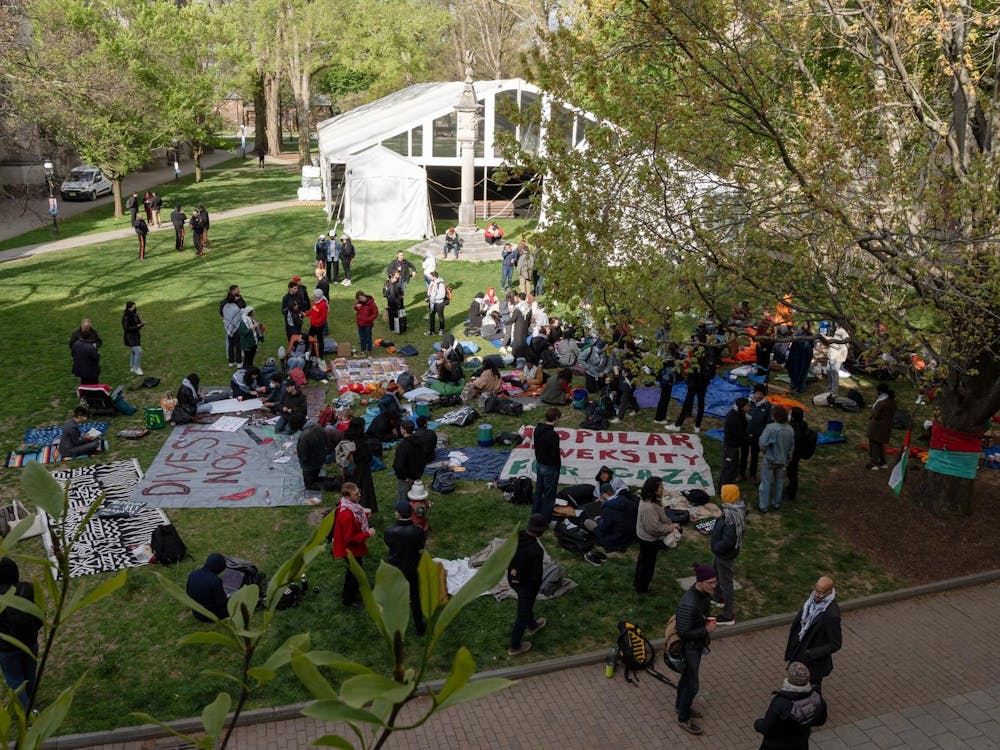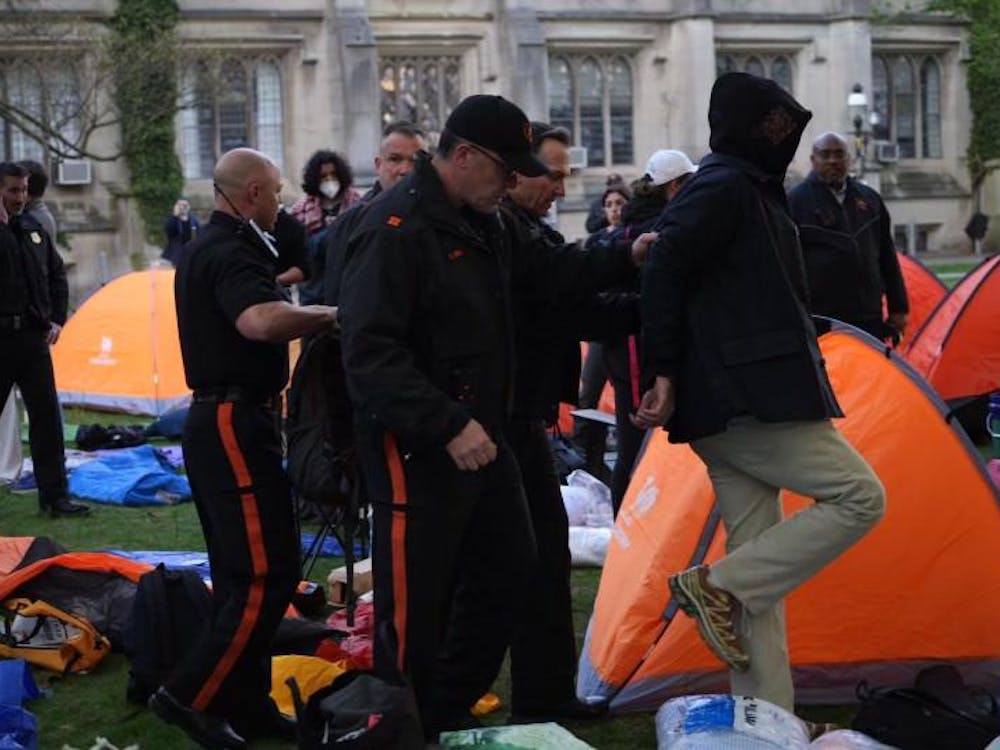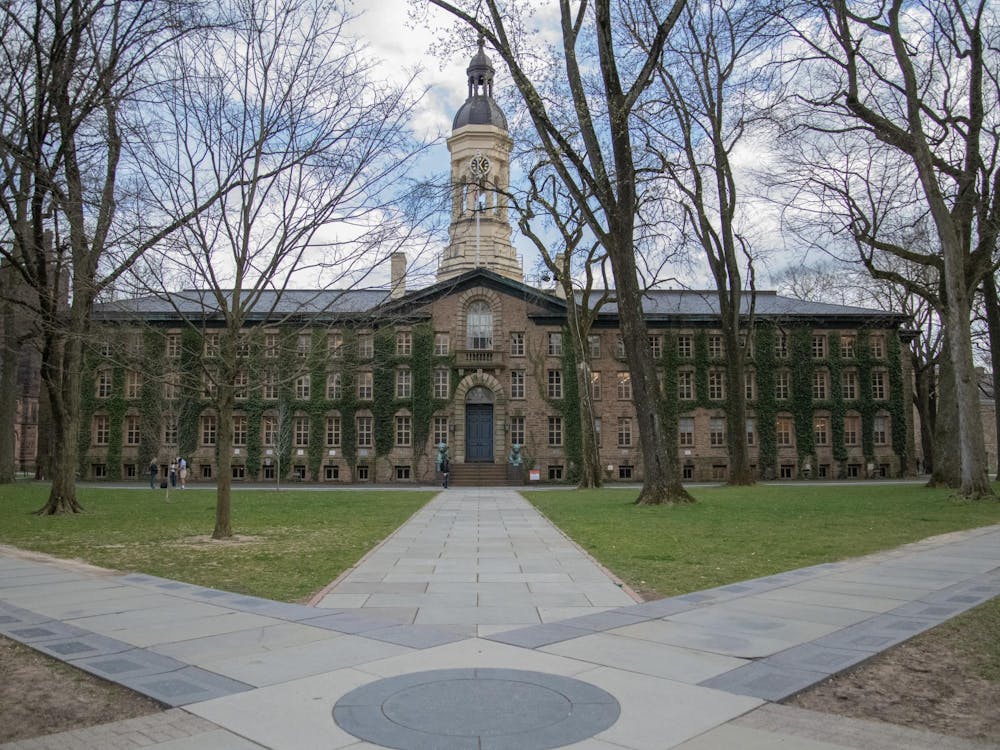Associate Dean of the College Frank Ordiway ’81, who oversees the University’s postgraduate fellowship program, has been fired, effective June 2010.
Classics professors Constanze Guthenke and Joshua Katz, who advise applicants for the Rhodes and Marshall scholarships, confirmed Ordiway’s termination after inquiries from The Daily Princetonian.
Ordiway was notified last spring of the decision. It remains unclear how the fellowship program will be structured in the future.
Dean of the College Nancy Malkiel declined to comment on the firing, but she noted that her office was in the midst of a reorganization. “When we undertake a reorganization in the Dean of the College world, we restructure services under offices particularly well suited to manage those services,” she said in an e-mail.
“There will continue to be a position dedicated to fellowship advising at Princeton,” she added. “There will be no reduction in the amount of resources the University devotes to undergraduate fellowship advising or any of the Dean of the College’s other key functions.”
She also declined to comment on how the fellowship program will be run in the future.
“We are still engaged in conversations with respect to a number of functions in our office,” Malkiel said. “We will announce our plans when we have finished those conversations.”
Currently, Ordiway is in charge of coordinating the postgraduate fellowship program, as well as advising applicants to 11 individual postgraduate fellowships, including the Rhodes and Marshall scholarships. In addition to Ordiway’s departure, the fellowship program will have to contend with the absence of Katz, who will be on leave next year.
Ordiway said in an e-mail that he had confidence in the University’s dedication to “nurturing the academic ambitions and the intellectual promise of Princeton’s brightest undergraduate scholars and future scholarship applicants and winners.”
“With the exception of three years of study in Italy and the United Kingdom in the 1980s, I’ve been at Princeton since I was 17 years old,” Ordiway said. “I’ve relished my years here as an undergraduate, graduate student, faculty member and administrator. After all this time in one place, I am looking forward to the time I will be able to dedicate to some new paths I want to explore.”
“We have very much enjoyed working with Frank Ordiway, his assistant Traci Miller and all the many wonderful students over the years and are saddened at the news of Dean Ordiway’s departure,” Guthenke and Katz said in an e-mailed statement. “We look forward to learning of the University’s plans and anticipate that those who assume the job of assisting Princeton’s finest undergraduates in the Rhodes, Marshall and other major fellowship competitions will continue to provide the level of support that these students deserve and have come to expect.”
Many students involved with the fellowship program expressed appreciation for Ordiway’s work, as well as frustration at his dismissal.

Joel Alicea ’10, who was a finalist for the Rhodes Scholarship this year, said he was “genuinely outraged” by Ordiway’s firing, calling the move a “devastating setback for the fellowship application process [and] a genuine loss for the University community.”
“I am not sure how the Dean of the College hopes to reorganize the fellowship process, but there is no substitute for Dean Ordiway’s talents and unrivaled ability to work effectively with students,” Alicea said in an e-mail. “No matter how the fellowship office is reconfigured, Dean Ordiway’s termination will have a real and detrimental impact on the application process. With so much current anxiety over Princeton’s ability to produce Rhodes and Marshall Scholars, I cannot think of a worse move by the administration coming at a worse time.”
Ordiway was notified of his termination at the end of a three-year period during which the University saw seven Rhodes Scholars and six Marshall Scholars.
“Dean Ordiway’s departure can only have a negative impact on the application process,” Alicea said.
Mark Jia ’10, who was also a finalist for the Rhodes Scholarship this year, said Ordiway’s help was an essential part of the application process.
“He was interested wholly in whether or not this path would be the correct one for me, and I spent two hours with him in his West College office combing through Oxford degree programs and course offerings,” Jia said in an e-mail.
“I am certain that I would not have gotten as far as I did in the Rhodes competition without his advice, support and guidance,” he added. “The fellowship application process is an incredibly complex universe unto itself, where the help of experienced advisers is critically important.”
Rhodes Scholar Sherif Girgis ’08 explained that advising is an important factor in fellowship success. “In order of increasing influence, the factors that determine fellowships results are: adviser, applicant, luck,” he said in an e-mail. “That’s why people can win without good advising and lose with it.”
“Had I applied a dozen times with his help, I would not have won every time," Girgis noted. "But without his help, I might well have lost every time.”
Wilson School professor Stan Katz, who chairs Princeton’s Truman Scholarship selection committee, said he heard about Ordiway’s firing “two or three weeks ago” from a colleague.
“I have had an extremely good working relationship with Frank, and I very much regret that I won’t be working with him,” Katz said. “I was blown away by [his dedication].”
Girgis said he was not sure how the University would replace Ordiway, who helped him throughout his application process. “Unless an equally informed, experienced and committed (i.e., full-time) advisor is brought to replace him, Princeton’s number of Rhodes and Marshall Scholars will certainly decline (with random variations here and there),” he explained in an e-mail. “If no one at all replaces him, we’d be lucky to have one winner of either scholarship every two years.”
“There are good potential applicants at many schools,” Girgis added. “What makes some schools perform disproportionately better is good advising … Princeton’s administrators are free to value fellowships less. They may have good reasons to; they may even have to. What they cannot reasonably do is claim to value fellowships the same [if] they fire (and don’t replace) Ordiway, who’s probably as good as any adviser around.”
Jia said he thought Ordiway’s departure would likely damage the fellowship application process administration. “Without knowing what the University has set in place for future fellowship applicants, I can’t imagine how this could not hurt,” he said. “The fellowship process is incredibly complicated — good advisers are necessary, and in Dean Ordiway, we have an outstanding adviser. There are very few people in this country with as much experience as he [has].”
Rhodes Scholar Henry Barmeier ’10 said Ordiway was a huge asset in preparing him for his final Rhodes Scholarship interview.
“Having so much experience with the process," Barmeier noted, "he was able to preview, almost word for word, four or five of the questions that I fielded from the Rhodes committee in San Francisco.”








